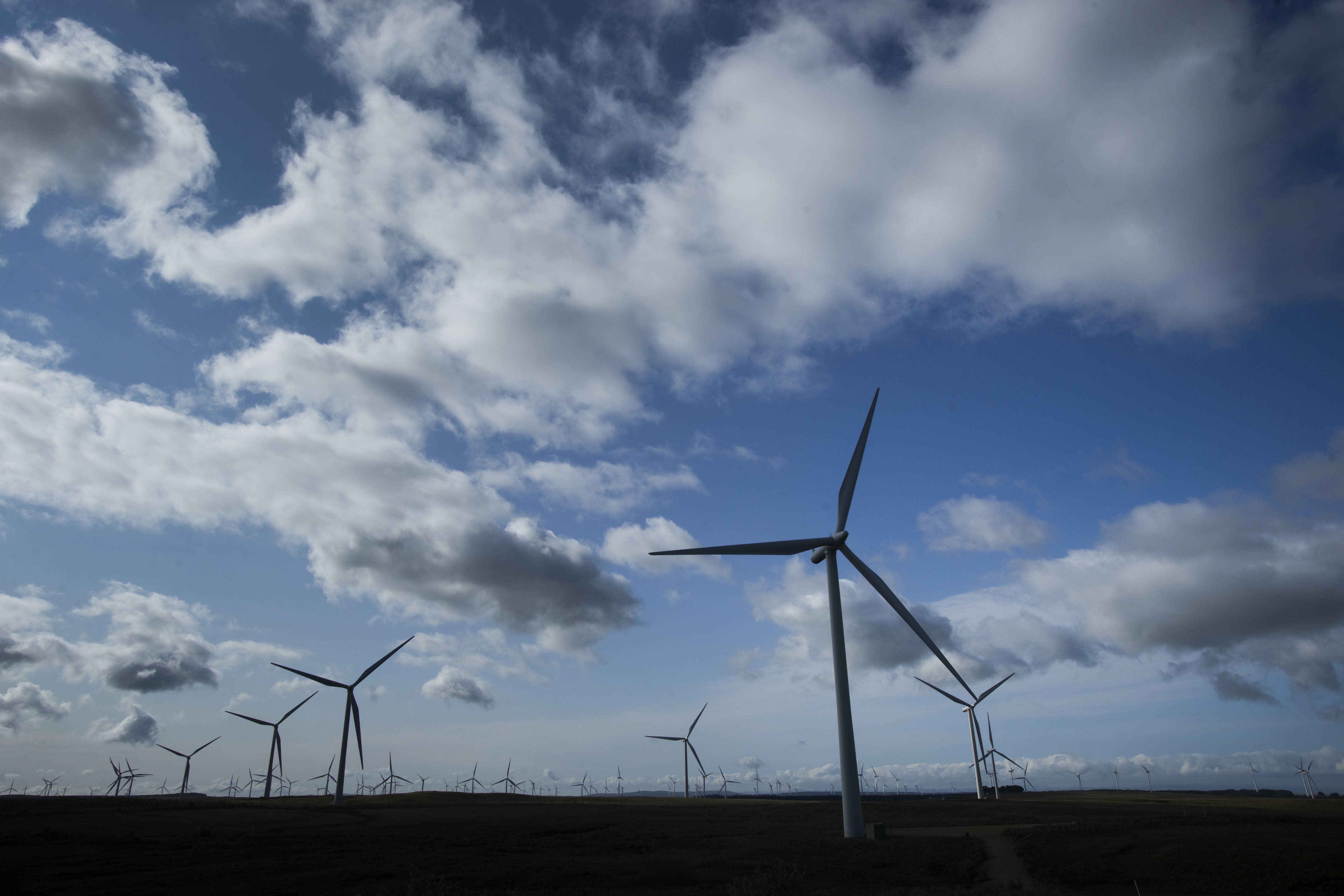Energy bosses ‘worried’ as ministers move to cap renewable and nuclear profits
The Government said it plans to introduce a temporary ‘cost-plus revenue limit’ on renewable energy generators and nuclear power plants.

Your support helps us to tell the story
From reproductive rights to climate change to Big Tech, The Independent is on the ground when the story is developing. Whether it's investigating the financials of Elon Musk's pro-Trump PAC or producing our latest documentary, 'The A Word', which shines a light on the American women fighting for reproductive rights, we know how important it is to parse out the facts from the messaging.
At such a critical moment in US history, we need reporters on the ground. Your donation allows us to keep sending journalists to speak to both sides of the story.
The Independent is trusted by Americans across the entire political spectrum. And unlike many other quality news outlets, we choose not to lock Americans out of our reporting and analysis with paywalls. We believe quality journalism should be available to everyone, paid for by those who can afford it.
Your support makes all the difference.Energy bosses have expressed concern that the Government’s proposal to cap revenues from renewable generators and nuclear power plants could put off investors.
The Government announced on Tuesday that it plans to introduce a temporary “cost-plus revenue limit” in order to break the link between high gas prices and the amount made by all electricity producers.
It announced the proposed cap as part of its Energy Prices Bill but provided little detail about how it would work, saying the “precise mechanics will be subject to consultation launched shortly”.
The move comes after the EU announced plans for revenue cap of 180 euros (£159) per megawatt hour for wind, solar and nuclear power last month.
Leaders in the energy sector warned that the mechanism must not put off investment and should be comparable to other countries.
However, we must be sure that the proposed mechanism does not risk the very investment the UK needs to ensure long-term, sustainable economic growth
Dhara Vyas, Energy UK’s director of advocacy, said they welcomed the Bill as “much-needed support” for millions of households and businesses.
“However, we must be sure that the proposed mechanism does not risk the very investment the UK needs to ensure long-term, sustainable economic growth,” she said.
“We look forward to continuing to work with Government to ensure that any new mechanism is introduced in a way that encourages investment in low carbon generation, rather than deterring it.”
Dan McGrail, chief executive of RenewableUK, said that the move risks “skewing investment towards the fossil fuels that have caused this energy crisis”.
“We are concerned that a price cap will send the wrong signal to investors in renewable energy in the UK,” he said.
A price cap acting as a 100% windfall tax on renewables’ revenue above a certain level, while excess oil and gas profits are taxed at 25%, risks skewing investment towards the fossil fuels that have caused this energy crisis
“A price cap acting as a 100% windfall tax on renewables’ revenue above a certain level, while excess oil and gas profits are taxed at 25%, risks skewing investment towards the fossil fuels that have caused this energy crisis.”
Mr McGrail also said that the EU’s proposed price cap is already causing “investor turmoil” in the European market, while the UK needs to attract £175bn in investment for wind power this decade.
He said the Government must ensure the cap is set at a level that still makes the UK more attractive to investors than the EU, has an planned end point and is technology neutral.
Keith Anderson, chief executive of ScottishPower, said: “We’re deeply worried at the suggestion renewables generators are making extraordinary profits when our power has been sold in advance at much lower pre-war prices – a fraction of today’s cost – protecting customers by hundreds of millions of pounds.
“It’s disappointing that such a significant market intervention by the Government has come with so little detail, all this does is create uncertainty.
This crisis has been caused by the cost of gas and it’s strange the proposed solution is to cap the price of low-carbon generation and to leave the gas sector untouched
“This crisis has been caused by the cost of gas and it’s strange the proposed solution is to cap the price of low-carbon generation and to leave the gas sector untouched.”
Meanwhile, an SSE spokesman said the “key lesson” of the current energy crisis is the need to bolster homegrown energy defences.
“Any revenue cap must be set at a level that doesn’t discourage essential investment in the UK’s renewable energy sector and therefore should be comparable to other countries, particularly given the 180 euros cap being implemented by the EU,” they said.
“It is also vital that the cap does not negatively impact on security of supply this winter, therefore flexible technologies, such as hydro, that require strong price signals to meet demand when most needed should be excluded.
“We will now work with the Government on the details of the policy to ensure it meets its objective of addressing extraordinary profits without throwing away the UK’s global leadership position on renewable energy investment”.